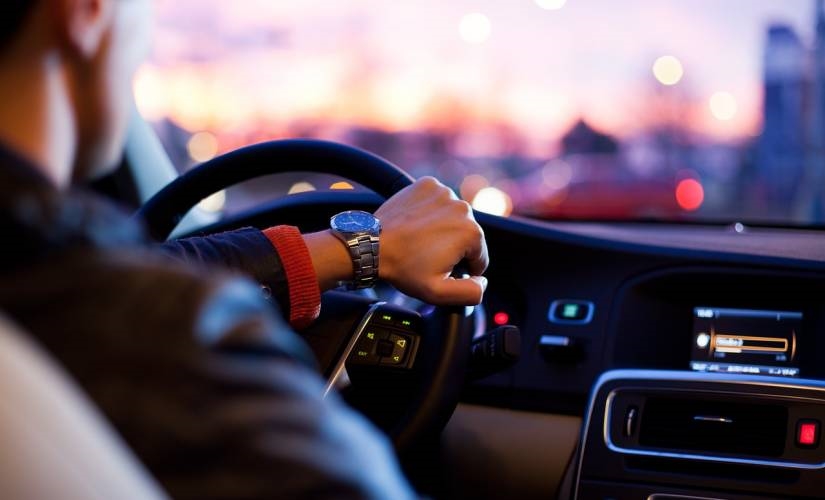Can You Get a DUI in a Self-Driving Car?

Cars that drive itself — it’s no longer fictitious. General Motors, Waymo, and Tesla are just some companies that already have prototypes of self-driving vehicles. It’s just a matter of time before they’re brought to market.
This raises the question of how it will affect DUI laws.
A driving under the influence (DUI) charge has a long-term impact.
It goes on your criminal record and the costly attorney fees and higher insurance rates can severely dent your finances. In theory, a self-driving car should eliminate DUIs. For now, though — hang on to your portable breathalyser. The day you can drink and drive without worrying about the consequences of a DUI hasn’t arrived yet. However — it may be a reality in the near future.
Can You Be Charged With a DUI in a Self-Driving Car?
While tech and auto companies focus on the mechanics of self-driving cars, governments and lawyers are questioning the legal implication. If the definition of a self-driving car means it operates without the intervention of a driver. Surely you cannot be charged with a DUI if you’re riding in a car — but not actually driving it.
The answer, however, isn’t that simple. Fully automated vehicles are not a reality yet. Therefore, in terms of the law, we are navigating unprecedented waters. There is no clear answer at this time.
How Does the Law Define a DUI?
In the United States, the term DUI is commonly used. However, some states use driving while impaired (DWI) — operating while intoxicated (OWI). Operating while visibly impaired (OWVI), and driving under the influence of intoxicants (DUII).
While the various terms differ slightly in meaning from state to state. In general, they refer to operating a vehicle while intoxicated or impaired by alcohol or drugs.
A DUI charge requires proof that the driver was in “actual physical control” of the vehicle. This includes steering, navigating, accelerating, decelerating, and stopping a vehicle that is in motion.
In a driverless car, an occupant is not doing any of those things.
However, don’t crack open the champagne just yet. It’s not as clear-cut as you think. DUI laws also take into account situations when a car is parked with a driver seated in it. If the car was running, and if the keys were in the ignition even if the car was not switched on.
This means it is possible for an intoxicated occupant of a self-driving car to be charged with a DUI. It also means that the law will have a harder time proving that a person in a self-driving car was in “actual physical control”.
Different Levels of Autonomous Vehicles.
Autonomous vehicles are not new. There are various levels of autonomous cars. Most cars today are semi-autonomous and still require a driver to operate it. Therefore, DUI laws apply to all semi-autonomous vehicles.
The debate around DUIs and self-driving cars arise in the case of fully automated vehicles.
Cars fall into six automation levels — starting at level zero (no automation). Gradually this will be increasing automation capabilities up to level five (full automation). Fully automated cars are not available yet. At this level, the car can drive itself. No human control, steering, brakes, or pedals are required.
A level five car can monitor the road.
These will maneuver and respond to road conditions — and park itself. In a fully automated car, all you’ll need to do is enter your destination and the car will do the rest. Tesla’s Autopilot takes intelligent automation further.
If you don’t tell the car where to go — it will look at your calendar and take you to your next appointment. It can also take you home if there’s nothing in your calendar.
How Are Other Countries Approaching This?
Australia is leading the way on amending driving laws to support automated vehicles. The issue of self-driving cars and DUIs is being hotly debated. The outcome may influence drink-driving laws in other countries.
The National Transport Commission (NTC) in Australia is pushing for DUI legislation to exclude drivers of automated cars. They say drink-driving laws should not apply to a person in a dedicated automated vehicle — as they are not operating the vehicle.
The NTC also argue that allowing a person who has consumed too much alcohol to use an automated vehicle can improve road safety.
As such — it will reduce drunk driving accidents and make the roads safer. They make a good point. It’s much safer for intoxicated people drive home in an automated car than to drive themselves. There’s also no need to call a taxi or Uber when your car can safely transport you home.
The predictions.
It is predicted that fully automated driverless cars will be on the road within the next 10 years. Lawmakers need to prepare for the day they make their arrival. It will also influence other laws, such as seat belt use, having open containers of alcohol in cars. In a world of driverless cars — will we even need a driver’s license? And what will happen to motorcycles?
(52)